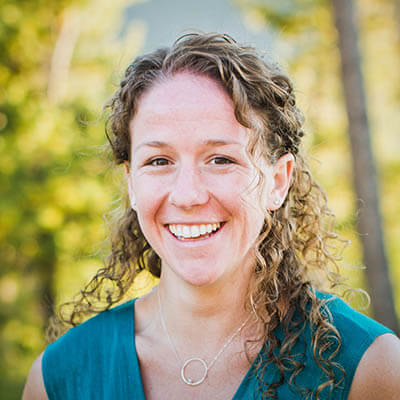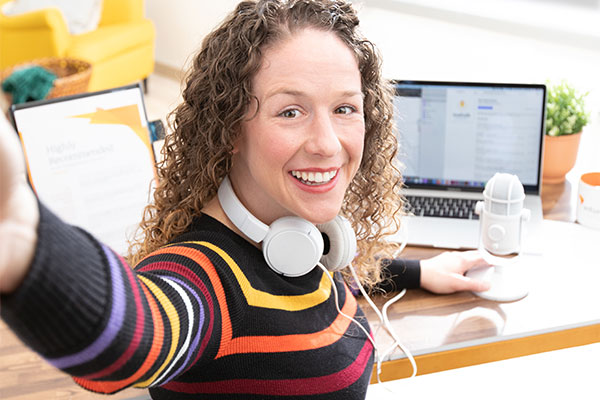We’ve all read the statistics about the state of resident and clinician wellness, and frankly, it’s bleak. I was given a lot of wellness advice when I was a resident. Much of it involved eating healthfully, doing more yoga, and taking advantage of the organization’s “wellness program.”
Meanwhile, I was working 80 hours a week in a very intense environment. I didn’t want more salads. Sometimes I just wanted to make it through the day without crying.
During my residency, my fellow chief residents and I saw a need for more emotional and existential forms of support. So we created Real Talk—a storytelling experience for healthcare providers that gives airtime to those unique experiences we have working in medicine.
Humans have been telling stories since the very beginning. And yet in medicine, we rarely pause to talk about our experiences. Sure, we have plenty of opportunities to share our cases, do quality review, and reflect on our mistakes. But we rarely talk about how it all feels. We don’t discuss what it’s like when our patient dies, when a child is sick, when we witness a miracle, or what it’s like to be a part of a team that literally saves lives.
What Is Real Talk?
Real Talk was inspired by the Moth Radio Hour, a storytelling competition and podcast with the mission to "honor and celebrate the diversity and commonality of human experience.”
Storytelling is especially powerful for healthcare providers because so few people outside our profession understand what our jobs are really like. By creating a protected space to share, we bring dignity, meaning, and significance to our experience, honoring our human side without seeing it as a sign of weakness – letting vulnerability be accepted and celebrated amongst our teams.
To start a Real Talk session, one person shares a 7- to 10-minute story about an experience that sticks with them or affected them personally as a provider. This is not meant to be a rehash of the medical aspects of a case. Instead, the storyteller focuses on how the case made them feel. How did it challenge their patience, strength, compassion, judgment, and worldview?
After the story, all participants spend 20 to 30 minutes discussing the themes of that story in small groups. For example, maybe a doctor talked about the difficulties of caring for a critically ill baby who resembled their child; participants might then discuss the kinds of patients who challenge them emotionally. No matter the topic, this conversation naturally sparks connections and brings teams closer.
Stories From Real Talk
My own story involves the unique approach I bring to my work as an emergency physician whose little brother has struggled for many years with heroin addiction. While this has been a devastatingly painful experience for my family, it has also helped me to better understand patients with substance use disorders. I approach the issue of opioid use with much more empathy and practicality (and far less judgment!) than most people, understanding that the road to recovery is long and winding. I realize that opioid addiction is a disease just like any other diagnosis. These patients are not bad people. They just made unfortunate decisions that led to lifelong illness.
One of our Vituity partners recently shared her experience as a foreign medical graduate. Although she was a high academic achiever, she felt that people saw her as less capable and talked down to her as a non-native English speaker with a heavy accent. Her sharing led to a palpable difference in how her work colleagues treated her. They began to look out for her and even stood up for her in front of the hospital staff.
With Vituity’s support in developing the Real Talk podcast I have had the unique opportunity to impact and elevate patient care while knowing I am supporting and improving the lives of my colleagues. It’s made all the difference to know I am in control of writing my own story and shaping the direction of my career.
Impact of Real Talk
How does Real Talk change the way we practice medicine? I hope to study this question and gather some data in the future. However, anecdotal evidence suggests that the experience is a powerful one.
When the 40 residents in our residency program completed a survey that ranked the wellness and social activities they valued most, almost all of them put Real Talk at the top of the list. In written comments, several noted that Real Talk had a huge impact on the culture of our program. They felt like they knew their fellow residents on a deeper level and had greater empathy for them. As one later told me, "Ever since Real Talk, when a colleague snaps at me, I find myself thinking they're probably having a bad day instead of, 'What a jerk.'"
In addition to enhancing team-building, Real Talk challenges the culture that doctors should be impenetrably tough and stoic, and bucks the old “go it alone” cowboy doctor mentality. It shows us that our stories—our experiences—matter, and that the simple act of sharing them can heal us. It always amazes me how vulnerable people will be when we give them space and permission to do so.
The Future of Real Talk
Since I finished my residency and joined Vituity, I’ve been moved by the depth with which my Vituity physician partners supported and enabled my vision. The Real Talk program has been offered at our national and regional events and adopted by a growing number of our practice sites. Even our scribe leaders have requested Real Talk training.
Another exciting result from the program is the development of the Real Talk podcast. The benefit of the podcast is the opportunity to share more clinician’s stories with the larger medical community and a chance for the nonclinical community to have a peek behind the scenes. We are actively seeking storytellers, so please contact us if you are interested in participating.
I believe that this enthusiasm for the Real Talk program and podcast beautifully underscores Vituity’s culture of wellness and our Partnership’s genuine desire to encourage joy in medicine. As far as I know, we are the only large national medical group that is taking this unique approach to provider health and wellness, with more programs in the works. I’m so glad that I have the opportunity to pursue my passion with the encouragement and support from Vituity.
And for those at practice sites without an in-person experience to turn to, fear not! You can always reach out to us for more information on how to get Real Talk started at your location.























